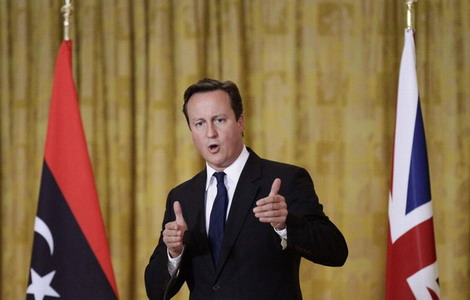China sets more funds for HIV research
Updated: 2011-09-15 07:28
By Shan Juan (China Daily)
|
|||||||||||
BANGKOK - China invested more than $18 million in HIV vaccine research and development in 2010, becoming the third largest contributor globally, after the United States and the European Union, according to a report endorsed by UNAIDS.
Internationally, HIV vaccine research and development (R&D) funding stood at $859 million last year, $9 million less than 2009, while China increased its spending by nearly $4 million over the same period, said the global report issued jointly by international organizations including AIDS Vaccine Advocacy Coalition (AVAC) and Intentional AIDS Vaccine Initiative.
"The long-term nature of vaccine research will require sustained investments globally and more developing countries like China are expected to shoulder more responsibilities," Kevin Fisher, the coalition's policy director said at the 2011 AIDS Vaccine Conference, which opened on Tuesday.
Unfortunately, overall global funding for HIV R&D has flattened out since 2000 and some early supporters, such as Canada and Sweden, have cut back, said the report. In the EU, a major contributor, funding has declined by 23 per cent since 2007.
In contrast, the Chinese government has pledged to further boost funding for HIV vaccine development by at least 20 percent in five years, according to Shao Yiming, director of the virology and immunology department of the National Center for AIDS/STD Control and Prevention.
Currently, China has four major HIV vaccine candidates under development on the mainland, all financed by the government.
"Compared with many developed countries like the US, which has dozens of HIV vaccine candidates under development, China needs more to have a better chance of success," Shao said.
His team is now waiting for approval from China's drug authorities to enter the second phase of the clinical trial for their HIV vaccine candidate, Tiantan.
Usually a vaccine has to undergo three phases of human trials before being licensed for use, experts said. The first two phases mainly test its safety and the third mainly its efficacy.
By May, 24 HIV vaccine candidates had entered the human trial stages across the world, including Tiantan, which is the only one from China to have reached that point.
Shao urged the Chinese government to regularly increase funding for vaccine development, particularly when some attention has been diverted to new prevention measures with proven efficacy.
"An effective and affordable vaccine is unanimously recognized as the ultimate weapon against HIV/AIDS worldwide," he said.
"The funding and human resources for vaccine R&D in China should be diversified and stakeholders like charities and industry should join in the effort."
Currently, all such studies on the mainland are funded and organized by the government, he said.
Half of the resources come from non-public sectors like pharmaceutical companies and philanthropic organizations, according to Shao.
As well, Kevin Fisher called on the Chinese government to be more transparent and to collaborate with international researchers in HIV vaccine development.
He said the Chinese authorities were usually reluctant to share relevant information, such as the amount of investment, with international stakeholders.
Hot Topics
Organ transplant bonds mother and son
Editor's Picks

|

|

|

|

|

|






